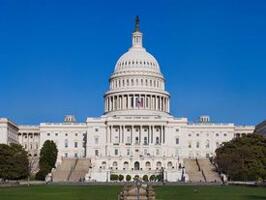After 20 Years, Success of Family and Medical Leave Act Should Humble the Far Right By Joe Conason
When Bill Clinton signed the Family and Medical Leave Act on Feb. 5, 1993 almost exactly 20 years ago as the first legislative act of his presidency, its establishment as law marked a progressive victory after nearly a decade of ferocious opposition by corporate lobbyists, Republican legislators, conservative media and right-wing pundits.
Leading the opposition was the U.S. Chamber of Commerce, whose spokeswoman Virginia Lamp denounced the act as "a dangerous precedent." (She would eventually marry Supreme Court Justice Clarence Thomas and move on to employment with the Koch brothers.) With the honorable exception of the Catholic Church and a number of moderate Republicans in Congress, the self-proclaimed "pro-family" forces in American political life eagerly aided and abetted the Chamber's attempt to kill the act. Mandating a federal right to unpaid leave, even if restricted to certain workers in larger businesses, would place the nation on a slippery path toward European socialism, or worse, according to the Chamber and its Republican allies and impose untold damage on business.



